Exclusive 3:16 Interview With Johann Friedrich Herbart
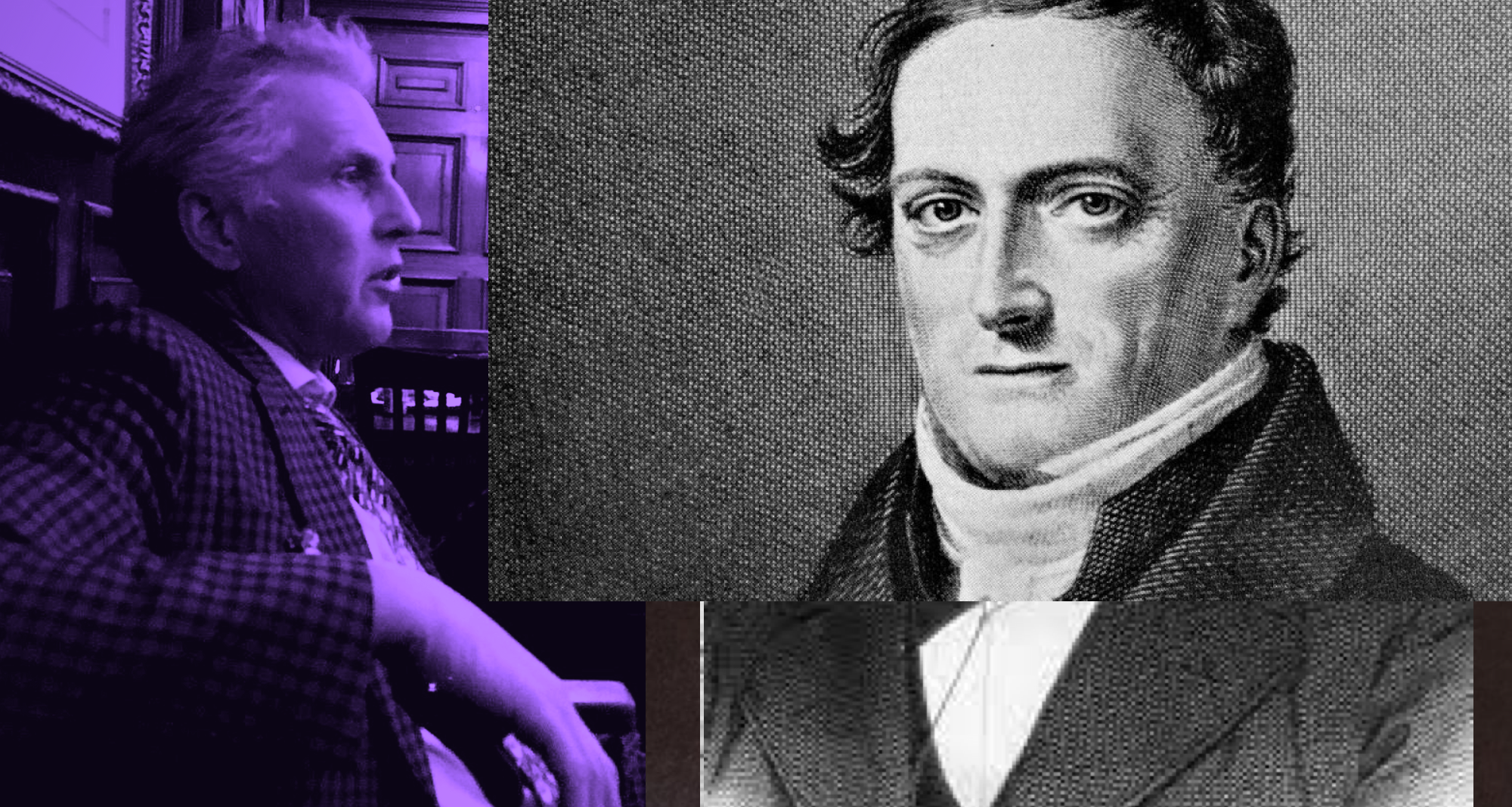
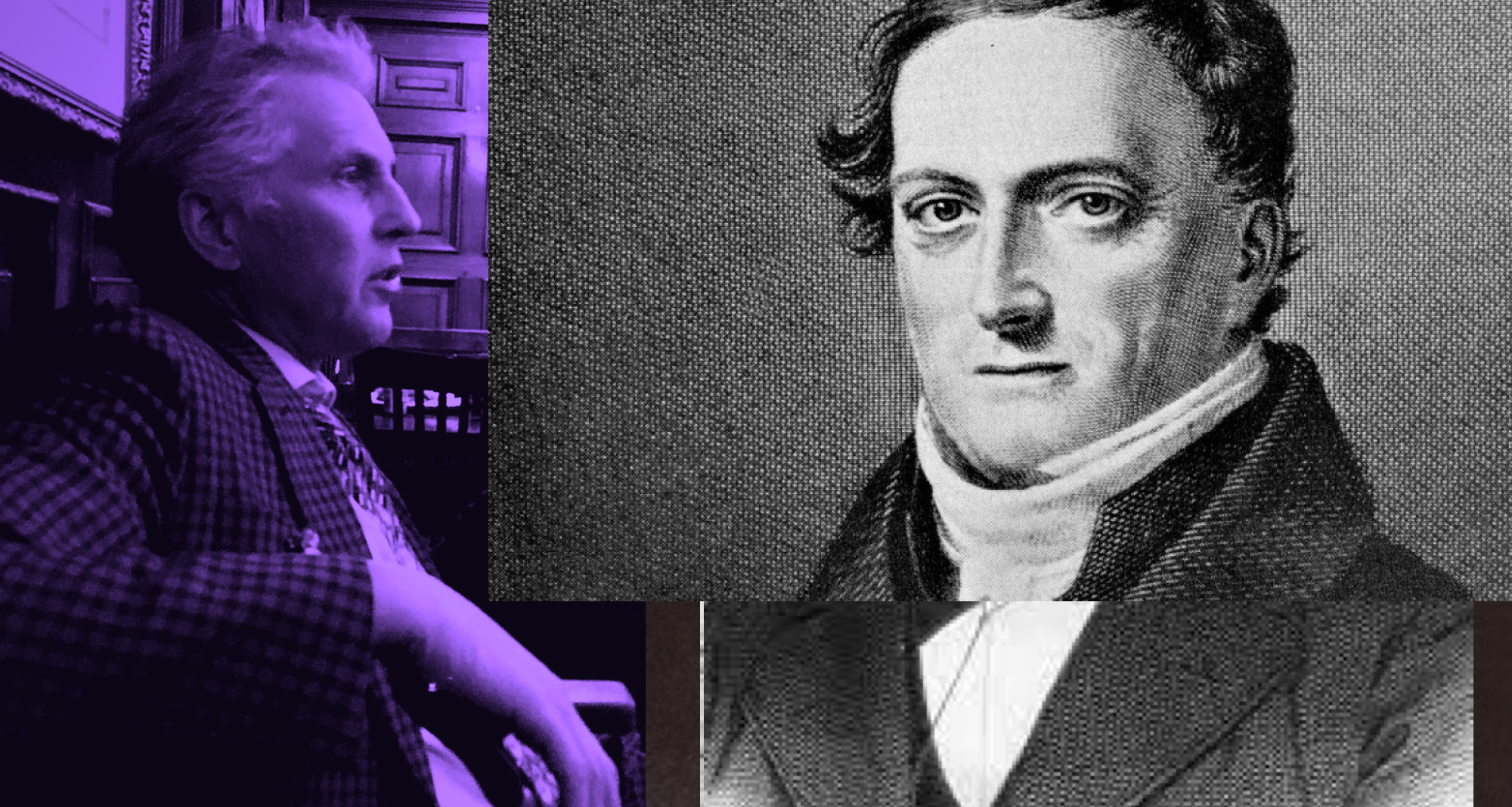
Kim, Alan, "Johann Friedrich Herbart", The Stanford Encyclopedia of Philosophy (Winter 2024 Edition) writes of the interviewee: ' Johann Friedrich Herbart (1776–1841) is known today mainly as a founding figure of modern psychology and educational theory. But these were only parts of a much grander philosophical project, and it was as a philosopher of the first rank that his contemporaries saw him. Even in his own day, Herbart’s direct influence on academic philosophy was limited, but this had as much to do with shifting disciplinary borders as with his polemics against the German Idealists. In psychology and pedagogy, however, his influence was greater and longer lasting. While no one took over his philosophy or psychology (and especially the impenetrable mathematics) as a whole, certain aspects of his thought proved immensely fruitful. Indeed, without Herbart, the landscape of modern psychology and philosophy would be unrecognizable. In this interview the interviewer restricts his questions to aspects of his philosophy of education.
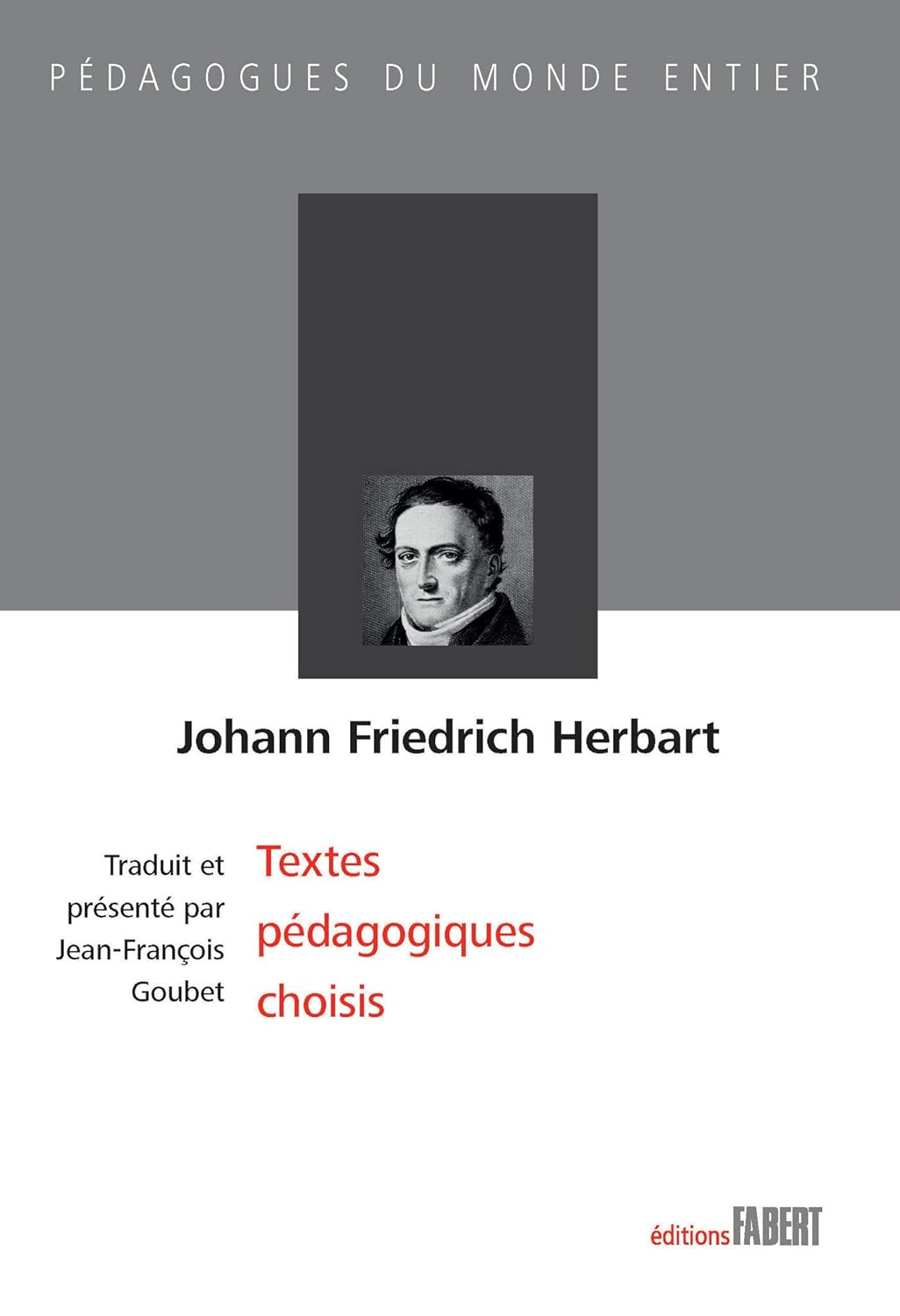
3:16: What made you become a philosopher?
Johann Friedrich Herbart: To completely teach how life is determined by its two rulers, Speculation and Taste, we must search for a system, of philosophy, the keystone of instruction. Melancholy is it, to witness how our philosophy up to the present time, has so often confounded the opposite and completely independent nature of the two — has misused taste in the name of speculation, or speculation in the name of taste ; melancholy to see how it has oppressed through both the spirit of observation and sympathy, and so injured life itself ; melancholy to see the convulsive struggles under which youths, often of ability, swaying hither and thither unprepared between the universal and the ego, of which one is too broad, and both are too deep, despairing and almost lost, glory in the acquired insight, that everything is nothing. Nothing is more shocking to the feeling of the teacher, than the carelessness by which the result of careful instruction is so often thrown into the whirlpool of the age's speculative adventures, and exposed to its doubtful consequences.
3:16: And is this why philosophy of education is so important to you?
JFH: Well Richard, useless laments over it here are not for me, still the science of education must point out the dangerous spot.
3:16: I want to interview you today regarding your philosophy of education. So perhaps we might start with this: what do you consider the purpose of education to be?
JFH: The one and the whole work of education may be summed up in the concept — Morality. And the first part of the educational aim is a person of many-sided and balanced interest.
3:16: What do you mean by many-sidedness?
JFH: Personality rests on the unity of consciousness, on coordination, on Reflection (Besinnung). The acts of concentration exclude each other, and thus even exclude the Reflection in which they must be united. These processes cannot be contemporaneous ; they must therefore follow one upon the other ; we get first one act of concentration, then another, then their meeting in reflection. How many numberless transitions of this kind must the mind make before a person, in the possession of a rich reflection and the completest power of reverting at will into every concentration, can call himself many-sided.
3:16: I see. So it’s a way of organizing reflection and concentration, of getting them in the right proportion relative to each other?
JFH: Between the extremes of perfect concentration and exhaustive reflection, lie the ordinary states of consciousness, which may be considered as we please — on the one side as partial concentrations, on the other as partial reflections. As then, perfect many-sidedness is unattainable, and since we must be content with some kind of, possibly rich, but yet only partial reflection instead of the most comprehensive, we might ask, what outline shall be given to it, or what part shall be preferably selected out of the whole — if the answer did not lie ready before us. It is the individuality, and the horizon of the individual determined by his opportunities, that cause the first acts of concentration, and therefore determine if not the central point, at least the starting-point of advancing culture.
3:16: So many-sidedness is what education attempts to attain in a person?
JFH: The joy of life is combined in it, with the elevation of soul which knows how to part from life.
3:16: To you the mind is constantly agitated and individualised and what you think is required to organize this into what you call ‘character’ is an education based on four concepts: clearness, association, system and method. Can you say something about this.
JFH: Should any one desire to teach philosophy by the guidance of this series of concepts, he must first separate from each other the objects of philosophic contemplation, and examine them as far as possible singly, for Clearness requires the absence of everything through which one object can obscure the rest. Then he must combine them thoroughly to bring them into manifold incidental connections, till his listeners have full power of passing from one point to another without difficulty, and especially till they are sure of no longer losing sight of one object more than of others - this is Association. Not till then will the systematic exposition begin, and not till then will its value be perceived as the arrangement and determination of the mutable – this is what I call System. The value of that arrangement and settlement will not be fully proved, till finally Method is added, which shows with regard to every part of System the necessity of its position.
3:16: And all this is focused on what the mind finds interesting?
JFH: Yes. The formal concepts hitherto treated of would be empty, if what they presupposed were non-existent. It is the interesting which the concentrations ought to pursue, and the reflections collect. Clearness and connection, system and method belong to that which is observed and expected.
3:16: But isn’t everything potentially interesting?
JFH: Ah Richard, a slight error of opinion must here be corrected. Do not forget interest among interesting things ; classify not objects, but conditions of -mind. After all, Heaven endows every kind of interest with thousands of opportunities; they pursue all these and attain nothing but weariness. Interest depends on concepts, on their opposition and interconnection, on their mode of comprehending various aspects, without becoming confused with these. Interest attaches itself to the idea, not to the thing, — to relationships, not to number or mass.
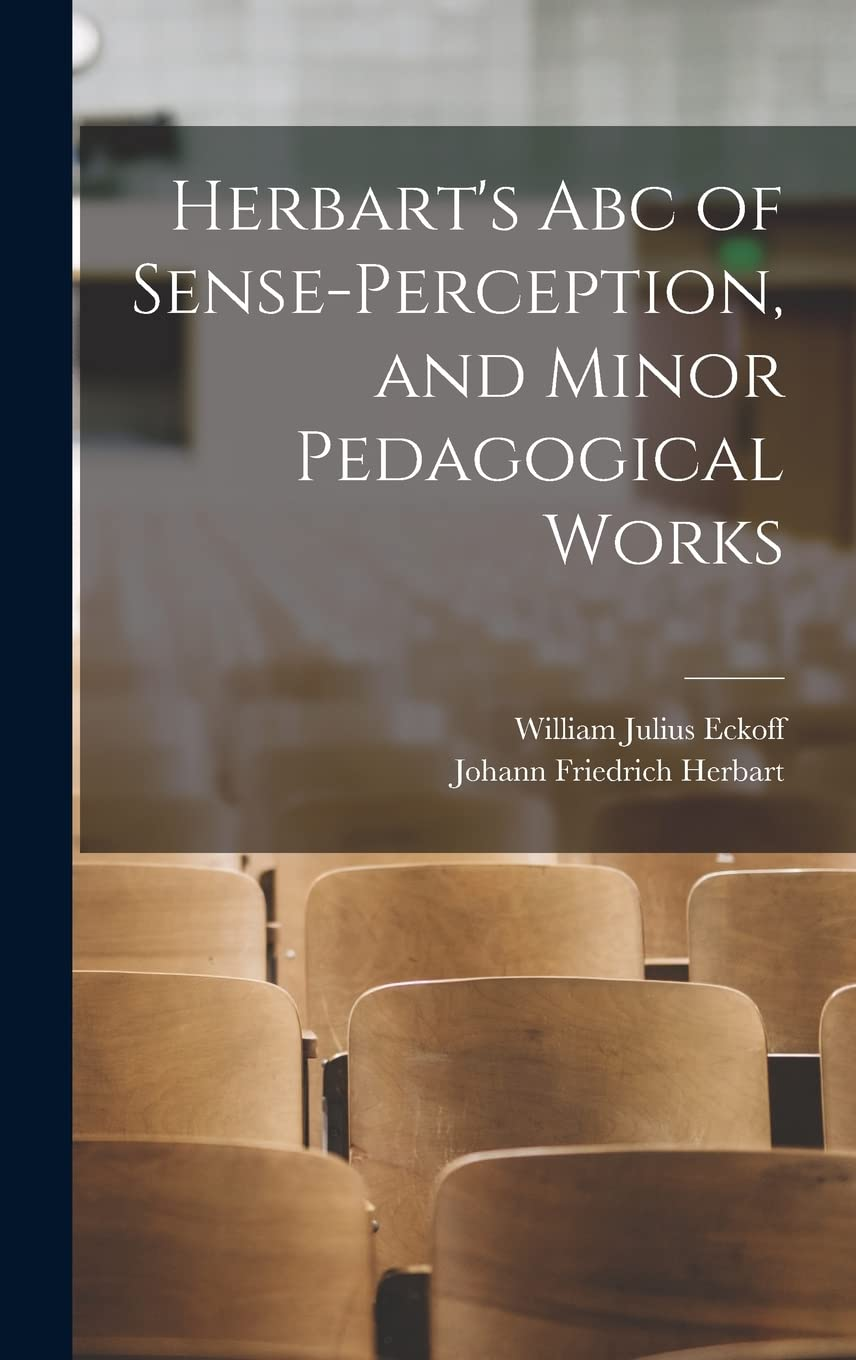
3:16: So are there both objective and subjective interests excited by different parts of knowledge?
JFH: Of course. The first kind of interest — that in the objective — is felt partly in the comprehension of objects, partly in the grasping of their interdependence according to law, partly in the approval which their harmony and adaptabilitv to an end win from us. The second kind of interest — in the subjective — devotes itself partly to men as individual beings, partly to society, and partly to the relation of nature to humanity. In all these aspects the characteristic of this second kind of interest lies in the sympathy, in the concentration on human feelings (whether personal or those of others). Quite foreign to this, on the contrary, is all mere observation, however interesting, of human beings; this belongs to the first kind — the objective. Both kinds touch at their highest point and meet together in Religion, for its object is Providence.
3:16: Why don’t you think people’s natural experiences and intercourse with others enough to develop character? Why do you think we need education based on instruction, which is the key to your philosophy of education isn’t it?
JFH: To leave man to Nature, or even to wish to lead him to, and train him up in, Nature is mere folly. For what is the nature of man ? To the Stoics and Epicureans, it was alike the convenient peg on which they hung their systems. Human nature, which appears to be suited for the most diverse conditions, is of so general a character that its special determination and development is entirely left to the race. The ship constructed and arranged with highest art, that it may be able to adapt itself to every change of wind and wave, only awaits the steersman to direct it to its goal, and guide its voyages according to circumstances. We know our aim. Nature does much to aid us, and humanity has gathered much on the road she has already traversed ; it is our task to join them together.
3:16: And is this the role of instruction, to join them together as you put it?
JFH: From Nature man attains to knowledge through experience, and to sympathy through intercourse. Experience, though our teacher through the whole of life, supplies nevertheless but an infinitesimal fragment of a vast whole ; infinite time and space veil for us an infinitely greater possible experience. Perhaps intercourse is relatively less barren, for the feelings of our acquaintances are as a whole like those of the rest of humanity ; but sympathy rests on the finest distinctions, and one-sidedness of sympathy is much worse than one-sidedness of knowledge. Therefore the gaps left by intercourse in the little sphere of feeling, and those left by experience in the larger circle of knowledge, are for us almost equally great, and in the former as in the latter, completion by instruction must be equally welcome.
3:16: Is instruction a way then of extending the mind from limited and limiting experiences and intercourse?
JFH: Yes. If we again remember our aim — many sidedness of interest — it easily occurs to us how limited are the opportunities which circumstances afford, and how far beyond them the really cultivated mind travels.
3:16: So the teaching is to widen horizons?
JFH: Precisely Richard. How often the distant space is more exquisitely illuminated in descriptions and drawings than the present ; how much more satisfying and elevating is intercourse with the ancients than with contemporaries ; how much richer in insight is idea than observation, and indeed how indispensable to action is the contrast between the actual and what ought to be ? Experience and intercourse are often wearisome, and we must sometimes bear it. But the pupil must never be condemned to suffer this from the teacher. To be wearisome is the cardinal sin of instruction ; it is the privilege of instruction to fly over steppes and morasses, and if it cannot always wander in pleasant valleys, it can train on the other hand in mountain climbing and reward with the wider prospect.
3:16: So what is interest in education? Can you summarise it and its link with instruction?
JFH: Interest in education is only an expression of our whole interest in the world and in humanity. Instruction concentrates all the objects of this interest — where our timid hopes will finally be saved — in the bosom of the young, which is the bosom of the future. Without this, instruction is of a surety empty and meaningless. Let no one say, he educates with his whole soul — that is an empty phrase. Either he has nothing to perfect through education in the student or the larger half of his reflection belongs to what he imparts to the student, and makes accessible to thim, belongs to his expectation of what more carefully cultivated humanity will be able to accomplish, beyond all that our race has hitherto experienced. Then, indeed, there flows from the full soul a fulness of instruction which can be compared with the fulness of experience, then the active mind imparts unfettered movement to the listener also, and under the broad folds of the mantle of such teaching, there is room enough for a thousand subsidiary thoughts without any loss in the clear outline of the essential idea.
The teacher himself will be to the pupil an object of experience, at once as fruitful as it is direct ;yes, in the hours of teaching an intercourse grows up between them which is, at the least, a foretaste of intercourse with the great men of antiquity, or with the clearly drawn characters of the poet. Absent historic or poetic characters must receive life from the life of the teacher. Let him only make a beginning ; the youth will soon contribute from his imagination, and the two will often be together in great and chosen company, without needing a third.
3:16: And instruction then is what cultivates the many sideness of the educated character?
JFH: Instruction alone can lay claim to cultivate a balanced all-embracing many-sidedness. We picture to ourselves a plan of instruction divided at first merely according to the parts of knowledge and sympathy, leaving entirely out of sight all classification of the materials of our knowledge, for these do not enter at all into the question of balanced many-sidedness, since they do not distinguish between sides of the personality.
3:16: You early on compared Cicero and Kant's conception of the highest good with the principle of moral philosophy and you studied at Jena with a Fichtean didn’t you? Is all this something that informs your philosophy of education?
JFH: Fichte taught me chiefly through his errors, and was able to do so, because in all his enquiries he aimed at exact thought. With and by means of this aim every teacher of philosophy is useful to his scholars; without it, the latter are but visionaries and fools.
3:16: So in the critical bifurcation in German philosophy round about 1798 between Realists and Idealism you sided with the Realists?
JFH: Yes Richard. However many happy thoughts may be scattered about in Fichte's deductions regarding natural right and morality, I consider the fundamental points, - his theory of the recognition of a reasoning being as such, and his doctrine of freedom - as false.
3:16: You thought the Idealists werevproposing ideas that just weren’t of much use when trying to work out practical outcomes for freedom, as required by pedagogy and training teachers didn't you?
JFH: I am very modest in my demands on human freedom Richard. Leaving that to Schelling and to Fichte, I seek to determine a human being by the laws of his reason and nature, and to give him that which will enable him to make something of himself.
3:16: So philosophy has to be useful in terms of helping us understand teducation and pedagogy?
JFH: Well I think that whatsoever of morality and of intelligence; of patience, perseverance, faithfulness, of method, insight, ingenuity, energy ; in a word, whatsoever of strength the man had in him, will lie written in the work he does.
3:16: And this approach is reflected in your own experience of teaching practice whilst you were in the house of Landvogt Steiger isn’t it?
JFH: That was a special time Richard, a special place for me. The man is man, the woman, woman, and the children, children ; they are all actually what they seem, and so at least satisfy the requirements of truth, if not exactly of beauty. Steiger was conscientiousness and punctuality itself, and yet no pedant ; he was almost without prejudices, and receptive to all for which a reason can be shown. He could be at times cheerful, merry; under his rule the household lived in quiet regularity, the wife in her unvarying gentleness, goodness and charity, the children in their joyousness. The house was no temple of genius, but the abode of healthy common sense.
3:16: It was whilst there that you started working out your philosophy of education wasn’t it, and your conception of what a teacher was?
JFH: Yes. The teacher, as tutor to two or three pupils, creates his own school. To him who hears the true artist's call to education, the small dull space in which he at first perhaps feels himself confined, soon becomes so bright and large, that he discovers the whole of education therein, with all its motives and needs, the satisfaction of which is truly a work immeasurable. Be he ever so learned, the boundary line of his know ledge must fade away in the face of all that amongst which he ought to choose, if he would find what is best suited to his pupils. If he be at once strong and flexible, nevertheless the strength and the flexibility which he needs to rule perfectly, and protect the varied dispositions of those entrusted to his care, must appear to him an ideal. The home, with all its relation ships and customs, must become infinitely valuable to him, so far as it helpfully co-operates, and what is wanting he must miss, that he may learn to desire it. Thus begins the education of the true teacher.
3:16: It’s when writing about the Pestalozzi book Wie Gertrud Hire Kinder lehr in 1802 that we can begin to see your opposition to traditional rote learning methods . Why don’t you like rote learning?
JFH: Well I had to consider these things. I asked: why does Pestalozzi give so much to be learned by heart? Why does he seem to have chosen the subjects of instruction with so little consideration for the natural inclinations of children? Why does he only allow learning, never talks himself with the children, never chats, jokes, tells stories to them? Why is everything which might mitigate the seriousness of school life here scornfully banished? How is it that he, at the first glance such a friendly, lovable man, he who greets everything human with such gentleness, whose first word to the stranger seems to say, ' here he who deserves it will find a heart,' — how is it that he, amongst the children who possess his whole heart, no longer pours forth joy, no longer combines the pleasant with the useful?
3:16: Is it fundamentally an underestimation of the child’s intellect that drove this type of teaching?
JFH: Of course. My own experiences and experiments had prepared me to estimate the mental power of children incomparably higher than is usual, and to seek the reason of their pleasure in instruction elsewhere than in superfluous sporting, and their dislike of it elsewhere than in the assumed dryness and difficulty of such subjects as require seriousness and attention. What are considered the difficult and the easy, I have often found to be the exact contrary.
3:16: Despite that you found much in Pestalozzi’s approach useful and correct didn’t you?
JFH: Yes. I have long held that the sole and genuine root of instruction is a feeling of clear comprehension. And a perfect regularity in the sequence of studies adapted to all requirements, was to me the ideal, which I looked upon as the omnipresent means of securing to all instruction its true efficacy. It was the discovery of this sequence, of the arrangement and co-ordination of what was to be learned contemporaneously and what consecutively, which formed, as I understood it, Pestalozzi's chief aim.
3:16: So Pestalozzi did all this and placed progress at the heart of what the teacher was to do?
JFH: Yes. No useless word was heard in the school; thus the train of understanding was never interrupted. The teacher spoke steadily to the children, the wrong letters were immediately rubbed off the slate, so the child could never linger over his mistakes. There was no deviation from the true course ; therefore every moment was one of progress.
3:16: Pestalozzi wrote about principles of Observation (Anschauung) and you found this very important and wanted to find a way of placing this in a developed form to the whole of education didn’t you?
JFH: Instruction has to guide two separated, but always simultaneously advancing courses from below upwards to that highest immovable point, that it may unite both at last in it. As we’ve already discussed, we may distinguish these courses by the names Knowledge and Sympathy. Training in acuteness and the first preparation for contemplative observation (Anschauung) and the work immediately following it, in short, the A B C of the senses, are the beginnings of the course of knowledge. Of all the formative processes of education, cultivated observation is the most important, both for the child and boy, for it lays the solid foundation of future knowledge and judgment. The child is made up of desires, perceptions, and imaginations. From perceptions follows knowledge of nature and of objects, and they must preponderate, unless the child is to be ruled by caprice, the outcome of desires, or by delusion, the growth of imaginations. Imagination needs guidance, the desires a counterpoise ; both lend themselves to a keen observation of objects as they are, which means, in the case of children, as they are exhibited to them.
Since the senses only discover easily what the mind knows how to see, the eye is worth nothing unless the mind is disciplined. To this end, the mind must observe, to the utmost degree of accuracy, differences of form. Forms must be studied systematically as form ; their concepts must enter into and become an integral part of the mind's contents. Mathematics contain the material gathered by the greatest minds of all ages for the study of form, and therefore the best material for the cultivation of Observation (Anschauung). Hence mathematics are indispensable for the beginning, middle, and end of an educating instruction. Instruction will overcome distraction — a child's natural condition — when it has shown him the weakness, and at the same time the potential strength and capacity for cultivation of his intellect, and for this mathematics is the best instrument. In mathematics, and nowhere else, is to be sought the thread for a child's early instruction, which can be so conditioned, that it shall provide an authority for its own use as well as for all other studies, at whose command distraction shall disappear and attention arise and endure.
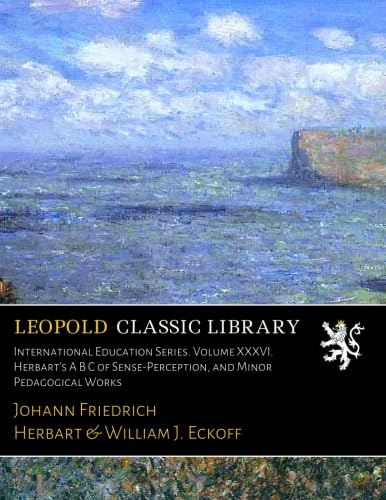
3:16: So this is the A,B,C of Anschuung. So where does progressive sympathy begin?
JFH: It would be somewhat more difficult to state the starting-point of progressive sympathy and to justify the statement. Closer consideration soon shows that this point cannot lie in the actual present. The child's sphere is too narrow, and traversed too soon, the adult's sphere is among cultivated people too high and too much determined by relationships, which we would not willingly explain to the little boy if we could.
3:16: This is why you think the teaching of poetry and myth important?
JFH: An illuminated spot for the whole of posterity is formed by the classical representations of an ideal boyhood in the Homeric poems. But the earliest cultivation of the child's feelings will have been a failure, if, after taking his fill of pleasure in the characters, the moral impression left from those old stories is at all doubtful. The relation of fable to truth, and of barbarism to culture, must be apparent to the boy, when he compares that picture with the circle in which he lives. And the double contrast, partly between the poet's people and those of his own world whom he loves and honours, partly between those gods and the Providence whom he pictures after the image of his parents, and whom he worships after their example — the contrast, I say produces on a pure and youthful mind an influence contrary to that which it does on those who seek refuge from the tedium of lengthy sermons in their imagination, with which they daringly play, and find compensation in imaginative feats in which they wonder at their own dexterity. The boy plays in real life, and it is by play that he realises for himself his imaginings.
3:16: And these days we say the same for girls too!
JFH: Cool.
3:16: So these ancient texts give room for the learner to morally grow? And it’s through understanding themselves as part of nature , not through reason, that the learner cultivates their sense of morality?
JFH: Do you think you can teach how to act solely through the moral ideas ? Man stands in the midst of nature; himself a part of her, her power streaming through his innermost self, he answering external force with his own according to his method, his nature, first thinking, then willing, then working. Through his will goes the chain of nature.
3:16: You develop the initial ideas of Pestalozzi by encompassing it and therefore broadening it through psychological understanding so that it becomes crucial to the way teachers should instruct don’t you?
JFH: Yes. Pestalozzi has worked it out for only a narrow sphere, that of elementary education; it belongs, however, to the whole of education, but it needs for that an extended development.
3:16: This is where your knowledge of psychology and science was helpful.
JFH: The total absence of any scientific training, and ignorance of even the little psychology known to his predecessors, rendered Pestalozzi incapable of generalising from his experience the laws of mind, and consequently of demonstrating the validity of any law for all education. That he clearly felt the need thereof is certain; he expressed it by saying : I wish to psychologise instruction.
3:16: So you think the science of the educator is psychology?
JFH: Yes. It would be a psychology in which the total possibilities of human activity were sketched out a priori. I think I recognise the difficulty as well as the possibility of such a science. Long will it be before we have it, longer still before we can expect it from teachers. Never, however, can it be a substitute for observation of the pupil; the individual can only be discovered, not deduced. The construction of the pupil on a priori principles is therefore a misleading expression in itself, and is also at present an empty idea which the science of education cannot handle for a long time.
3:16: Returning to Pestalozzi then, you recognised what needed to be done from reading him? You saw that he was wanting to reverse the usual formula that informed teaching up to that point in German schools?
JFH: Yes. The essence and the advantage of Pestalozzi's method of instruction is that it perceives its work is to build the child's mind, to construct therein a definite and clearly perceived experience; not to proceed as if the boy had already an experience, but to take care that be gains it.
3:16: I see, and that’s why getting the sequences of instruction right was so crucial - the arrangement and co-ordination of what was to be learned synchronously and what consecutively – as you put it. Was it in Koningsberg that you really started to put together you philosophy of education?
JFH: Yes, my idea was that in education, theory and practice should always go together. What things must take place consecutively and one through the other, and what on the contrary must do so contemporaneously, and each with its proper and original power — are questions which touch all employments and all plans in which a great number of complicated measures have to be carried out. Our preceding concepts show us that instruction has to develop knowledge and sympathy at the same time, as diverse and fundamentally individual states of mind. There is a length and breadth in instruction, formed respectively by those subjects which must be learned together, and those which must follow each other. The breadth of instruction must be less than its length, which is prolonged through several years. But there are only two main threads which can and ought to be spun out in both directions — knowledge of nature and knowledge of humanity ; languages are but instruments to acquire this knowledge.
3:16: You think that to know what to look for an instructor must have psychological insight?
JFH: One sees what one looks for; every clear head has psychological insight, in so far as it cares to look into the minds and hearts of men. What the educator should care for must lie open before him like a map, or if possible, like the plan of a well-built city, in which sets of lines having similar directions always intersect at exactly the same angle, and in which the eye finds itself at home without preparation. With what aim, the teacher should grasp his work — this practical consideration, detailed at present down to the measures we have to choose according to our present views, is for me the first half of the science of education. Corresponding to this should stand a second half, in which the possibilities of education are theoretically laid down, and portrayed as limited by changing circumstances. .
3:16: And this was a new idea and had a tincture of Kantianism in it?
JFH: Haha. Well, amongst my duties, Richard, I had the lectures on education very much at heart. But education cannot merely be taught; it must be demonstrated and practised. Besides, I wish to extend my ten years' experiences in it. So I long ago conceived the idea of teaching a small number of selected boys myself for an hour daily, in the presence of some young men acquainted with my pedagogy, who will afterwards attempt in my place and under my eye, to carry on what I have begun. Gradually in this way teachers may be trained, whose methods must be perfected by mutual observation and exchange of experience. Since a plan of instruction is worthless without teachers, and more over such teachers as are inspired by the spirit of the plan, and skilled in the use of the method, perhaps a small experimental school such as I propose will be the best preparation for future and more extended movements. Kant's saying is : ' First experimental, then normal, schools.
3:16: And you were supported by William von Humboldt, the Minister of Education, at the time weren’t you in setting up these experimental schools and the thought that education was best in a family setting?
JFH: A learned, humane man, by no means ignorant of philosophy.
3:16: This went against the prevailing idea of the time which was for a state education along the lines promoted by Fichte wasn’t it.
JFH: Yes.
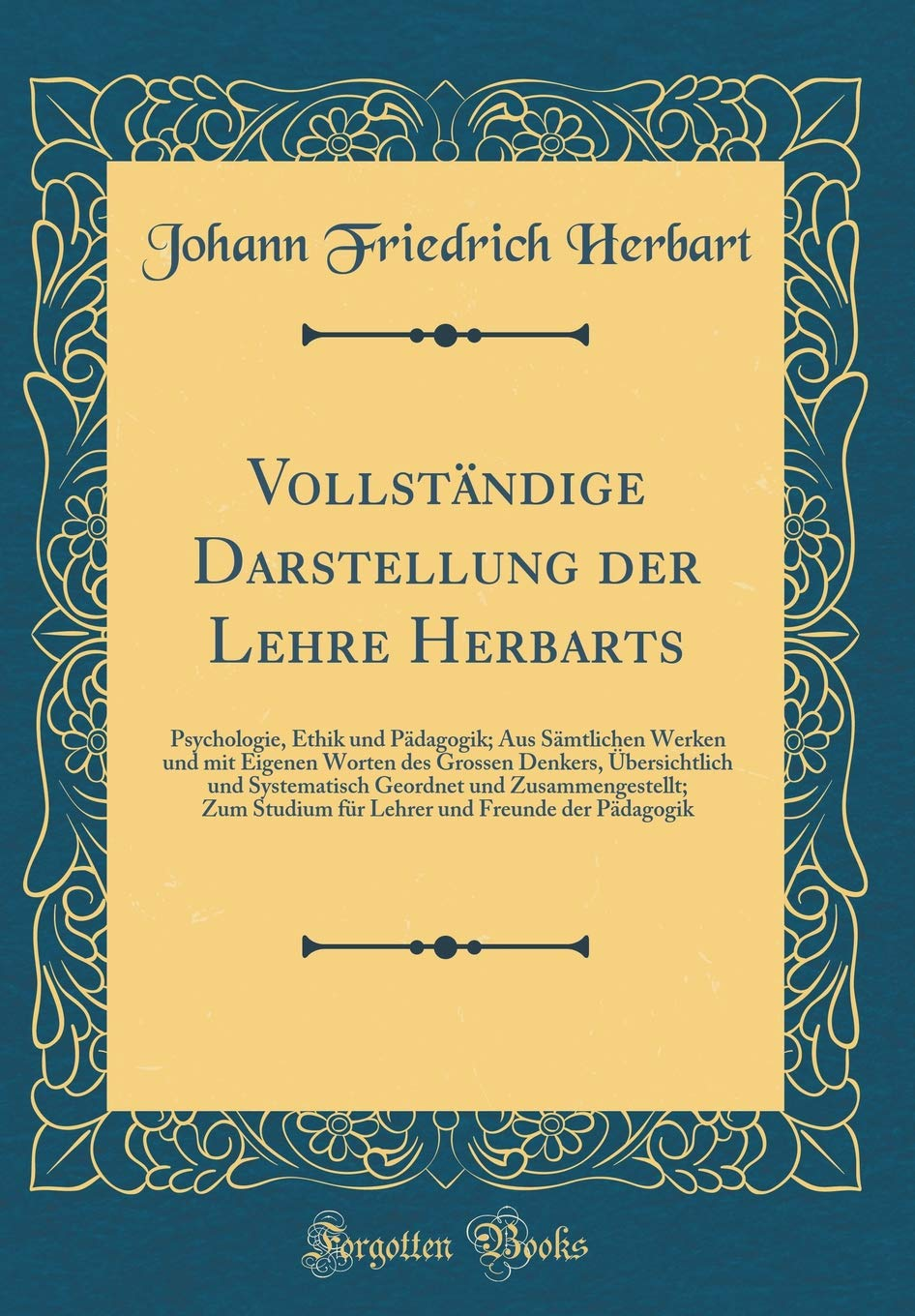
3:16: Can you describe a course of instruction you set up which gives us a flavour of the content of your seminaries?
JFH: Sure. Greek was begun with boys from eight to ten years old by translating in their order Homer (the Odyssey), Herodotus, and Xeriophon, the teacher preparing the pupil (in the historical and geographical details of the book), then translating it with him, and afterwards gradually giving from it the elements of grammar. After Xenophon, Latin was begun with Virgil's Eneid, which was prepared for by a short study of Eutropius. Historical lessons from ancient history on the model of an ancient writer (for instance Livy), and plane and sphere observation exercises (Anschauungs-iibungen) necessitating the teacher's knowledge of trigonometry, were given pari passu. Backward boys were stimulated by analytical conversations on familiar objects. Generally in the thirteenth year, or as soon as Ceasar could be read fluently, Latin syntax was begun, which, with examples, was learned accurately by heart in from six to nine months, but no exercises were set, lest the pupil should acquire the habit of writing errors. Such written exercises, for which the pupil was prepared by learning whole chapters from Cicero and Caesar, were begun when the syntax was finished, and at the same time as the comparative Greek and Latin syntax. Then followed the translation of Homer's Iliad, and afterwards Plato and Cicero, that the pupil might be introduced to a system of ethics.
Mathematical instruction grew out of the observation-exercises before referred to; the pupil was taken quickly through geometry, trigonometry, and algebra, up to logarithms, with the help of the integral and differential calculus. Then followed, with more expenditure of time, conic sections, and the elements of astronomy, and finally some problems in statics and higher mechanics.
3:16: Wow. Pretty intense. And of course this was considered terribly troubling for reactionary forces at the time.
JFH: It was thought to be harbouring and fostering democratic intrigues.
3:16: Now we really do have to understand how your modified Kantianism worked in all this. A big difference between you and Kant lies in the domain of morality where you dismiss Kantian notions of duty, or at least, make duties much less important in your system than in Kant’s. JFH: Yes. If the notion of duty is to be the first principle of ethics, a direct certainty of the validity of an original command must exist — but it does not. For to command is to will, and if a command as such be possessed of original certainty, then one act of volition as such must take the precedence of others, which are subservient to it. But each will, as will, is equal to any other will. Consequently, since no will, as will, is superior to any other, no command, as such, has an original right to command. Hence that which is commanded, cannot as such carry with it the obligation of duty. Therefore the notion of duty is deduced, and hence can form no part of the basis of practical philosophy.
3:16: So you’re arguing there’s no law to establish any primary basis of moral worth?
JFH: Yes Richard. It was a mistake to begin the science of ethics with the categorical imperative.
3:16: So you have no room for ideas of transcendental freedom, and especially in relation to education which you think just leads to dangerous conclusions.
JFH: Quite.
3:16: So are relationships of the will the basis of morality for you ?
JFH: Yes, the simplest conceivable relations of will which can follow from its activity directed on the Ego or on other volitions or objects.
3:16: You have several types of volitional perfection. Inner freedom is particularly important isn’t it?
JFH: This is the idea of being in harmony with oneself, not the empty, vague identity of the modern idea, but the Platonic, the harmonious triad of practical insight, taste, the active willing, where the control of the will is at the same time reservation from every opposing will.
3:16: And the idea of Perfection or Efficiency – Vollkommenheit - is also very important to you isn’t it?
JFH: Yes, this is understood as a correct measure of the strength at which the judgment, or the law-giving will, should arrive.
3:16: Why is this notion of perfection so important in education?
JFH: Well, not on account of its greater importance, but because that part of the educational aim determined by it - the vitality of a many- sided interest - requires the greatest expenditure of manifold efforts, and because by it at the same time the basis of the remaining moral culture is won.
3:16: You’ve got five perfections – benevolence is the top one of these isn’t it?
JFH: This is the absolute good, which our religion calls love.
3:16: And you also have the perfection of the idea of Right which involves the agreement of several wills as a fixed principle, and the idea of Equity or Retribution which is all about balancing previous relationships. And you then deduce socialising concepts from these ideals don’t you - From the Idea of Perfection came that of a System of Culture ; from the Idea of Benevolence that of an Administrative System ; from the Idea of Right that of a law-abiding Society ; from the Idea of Equity or Retribution that of a System of Rewards or Wages ; and from the Idea of Inner Freedom that of an Ideal Society.
JFH: Yes. So?
3:16: So is your idea that education’s work is to form a character which in the battle of life shall stand unmoved, not through the strength of its external action, but on the firm and enduring foundation of its moral insight and enlightened will?
JFH: Yes. Since morality has its place singly and only in individual volition founded on right insight, it follows of itself first and foremost that the work of moral education is not by any means to develop a certain external mode of action, but rather insight together with proportionate volition in the mind of the pupil.
3:16: And everything must contribute to this, including the State?
JFH: The whole treasure of accumulated research in a concentrated form, yes.
3:16: In your approach the theory that we’re made up of higher and lower capacities – the sort of thing found in Aristotle and embedded in Wolff, Kant and his disciples – is challenged isn’t it? You’re anti-Aristotlelian in this respect. This is why your psychological studies are important because you relegate talk of such capacities to the realm of myth and end up with the beginning of a natural history of the mind. Is that fair?
JFH: The mind of an adult, consisting of knowledge and imaginings, of resolves and doubts, of good, bad, strong, weak, conscious and unconscious opinions and inclinations, is put together differently in the cultured and uncultured man, in Germans, Frenchmen, and Englishmen ; how it is put together, the individuality of the man determines.
3:16: So is the germ of this mind which the child unquestionably carries within him, the counterpart of the seed of the future plant ? Must it develop to a predetermined form, as the seed of corn to wheat ? Or does the development go on all through life with infinite possibilities of variation, and would the vegetable world supply a truer image of the growth of mind, and the work of the gardener be a truer picture of the work of the educator?
JFH: The latter Richard. An educator is like the gardener who is to develop a lichen in the course of its growth into a grass, the grass again into a plant, and the plant into a fruit tree. If that mind be left to the play of chance, the latter sometimes builds, sometimes destroys; and the individual is at war with himself and his fellow creatures.
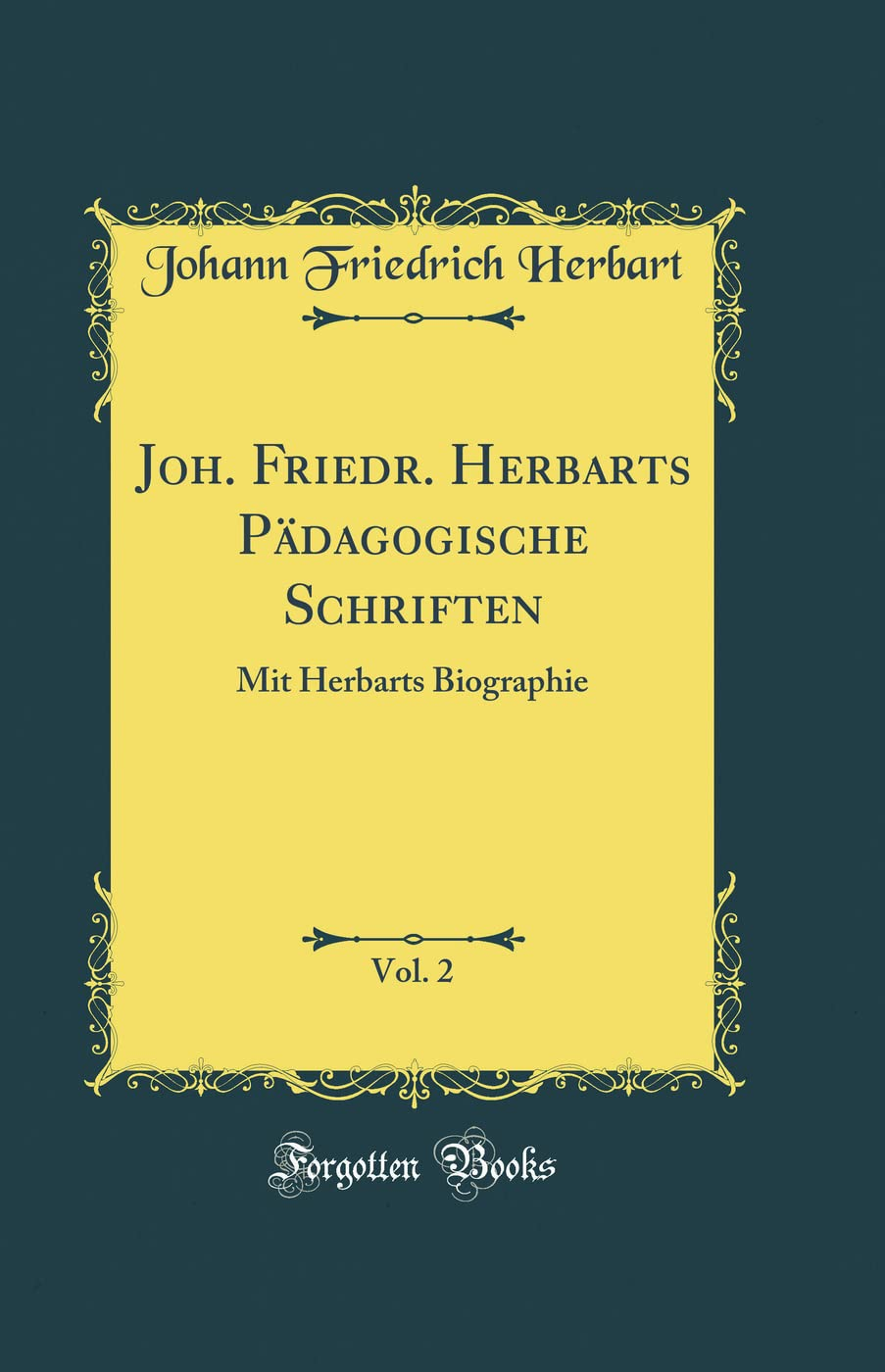
3:16: So you can’t just assume a mind has a predetermined end and so long as it’s surrounded with conditions suitable for that predestined end it will end up in a predetermined state? The educator has to get to the heart of that mind and leaving the better part of its individuality intact, innoculate it with thoughts, feelings, desires, it could never otherwise have obtained?
JFH: Well put Richard. Education is thus the formation of the circle of thought, a large and, in all its parts, interconnected circle of thought, which possesses the power of overcoming what is unfavourable in the environment, as well as of dissolving and absorbing from it what is good, for he only wields the full force of education who does so. To place the power already existent and in its nature trustworthy under such conditions that it must surely and infallibly accomplish this rise is the work of the teacher.
3:16: So the child’s wild impetuosity has to be tamed so that a character with a will is formed through education? This is character-building as will-building? In a sense then the young child has no moral character because no will, no character? In a way you break down the usual divisions between reason and impulse, understanding and will and say everything in the mind comes out of representations and therefore they have to be what education targets.
JFH: Indeed. Humanity is driven by no other mechanism than that created out of the presentations which he received and understands. These presentations themselves are powers which now restrain, now aid, each other; they are powers which rise and rush, throng and liberate themselves, and through this warfare fall into all the manifold conditions which we by a far too general and vague term call Will. What is not contained in this expression will? Inclination, desire, fear, courage, choice, caprice, resolution, reflection, good will that knows not what is good, bad will which imagines it is good, insight without resolution, resolution without strength, horror at the crime which is in the same moment deliberately perpetrated — and all the rest of the phenomena which in their wonderful mixture and separation, their continuous, incessant changing and new formations put to the blush and destroy at every moment all divisions made by philosophers between understanding and willing, reason and arbitrariness, impulse and freedom.
3:16: So the ideal tendency of education stems from ethics in light of this psychological naturalism that sees everything in the mind as coming from the agitation of representations and presentations which are being received and understood.
JFH: Yes, it is all about the problem of how to give an equipoise to a nature predisposed to egotism without injuring its activity, by placing a picture drawn in true and sharp out lines of what humanity can and ought to be, that the effort to live in conformity to his insight may be aroused in the student.
3:16: So character building in this sense is about the teacher presenting a view and the student learning to accept the good and reject the bad.
JFH: The teacher is to exhibit the course of the moral development of humanity in such a way that the boy may be led to correctly form and pronounce on its varied phases his own approving and disapproving judgment, and thus learn to shape his own principles. The teacher's task is to place the trustworthy power existent in the mind of the pupil in the midst of such conditions that it must inevitably effect the rise to self-conscious personality, while it is the pupil's part to form his character through a making he himself discovers in choosing the good and rejecting the bad.
3:16: In a way you want education to somehow preserve the individual whilst nudging it along to be good?
JFH: No human faculty ought to be crippled, but should advance to good under the protection and gentle rule of the moral law.
3:16: So the student discovers and chooses their character through good educational guidance?
JFH: Yes, it’s ‘a making ' which the pupil himself discovers when choosing the good and rejecting the bad. Such a revelation of the world — the whole known world, and all known times, obliterating if necessary the bad effect of undesirable surroundings — this may with justice be called the chief work of education.
3:16: Interestingly you think that teaching with these aims is a source of great satisfaction for teachers themselves – in a way your approach finds that teachers benefit from this approach alongside the students.
JFH: A Teacher has no greater happiness than the frequent knowledge of noble natures, which open and manifest to him unreservedly the wealth of youthful susceptibility. His own mind will be kept open, and his efforts unencumbered thereby, and he is convinced he possesses, in the idea of the cultivation of human beings, the true model for his own work. He is untouched by the impressions of want of appreciation which mutually put both teacher and pupil out of tune, when the one imposes what the other does not wish. He is not misled into turning instruction into play, nor on the other hand designedly into work ; he sees before him a serious business, and tries to forward it with gentle but steady hand. He burdens the catalogue of the lessons but little with his polyhistory (in which everything would be considered but the pupil's interest in the subject) ; he has enough to do in caring that the many- sidedness of the teaching shall not be less than the capacity which comes out to him. For it is no light thing to lastingly satisfy and fill the untroubled youthful mind.
3:16: Thanks - that’s pretty inspiring. You also have a pretty interesting take on what you mean by ‘school’.
JFH: I give to the noble word its true signification: school is leisure, and leisure is the common property of speculation, taste and religion.
3:16: There are many these days who attack education and schools. Universities are currently under attack from fascists all over the world. Can education be protected?
JFH: What will now protect the toilsome work of education ? What ought to protect it ? What, if not its inner rightness, the truth of convictions, the clearness and breadth of the intellectual gaze, if not the feeling of mastery over men and opinions, and the responsive inward gratitude for that care which has rendered such an ascendancy possible ? Let the teacher have courage, when he has failed, to see the consequences of his failures, and also have courage to learn from them. And so let the young man, at any rate now that he is grown, hear the language of the world. Let time bear him forth to its illusions and its revelations, to its troubles and its joys ! or let him try to influence its changes, to test and to show his courage and his power — the courage and power inborn, culti vated, and self- won !
3:16: And to finish with could you give us five books that would take us further into your philosophical world?
JFH: 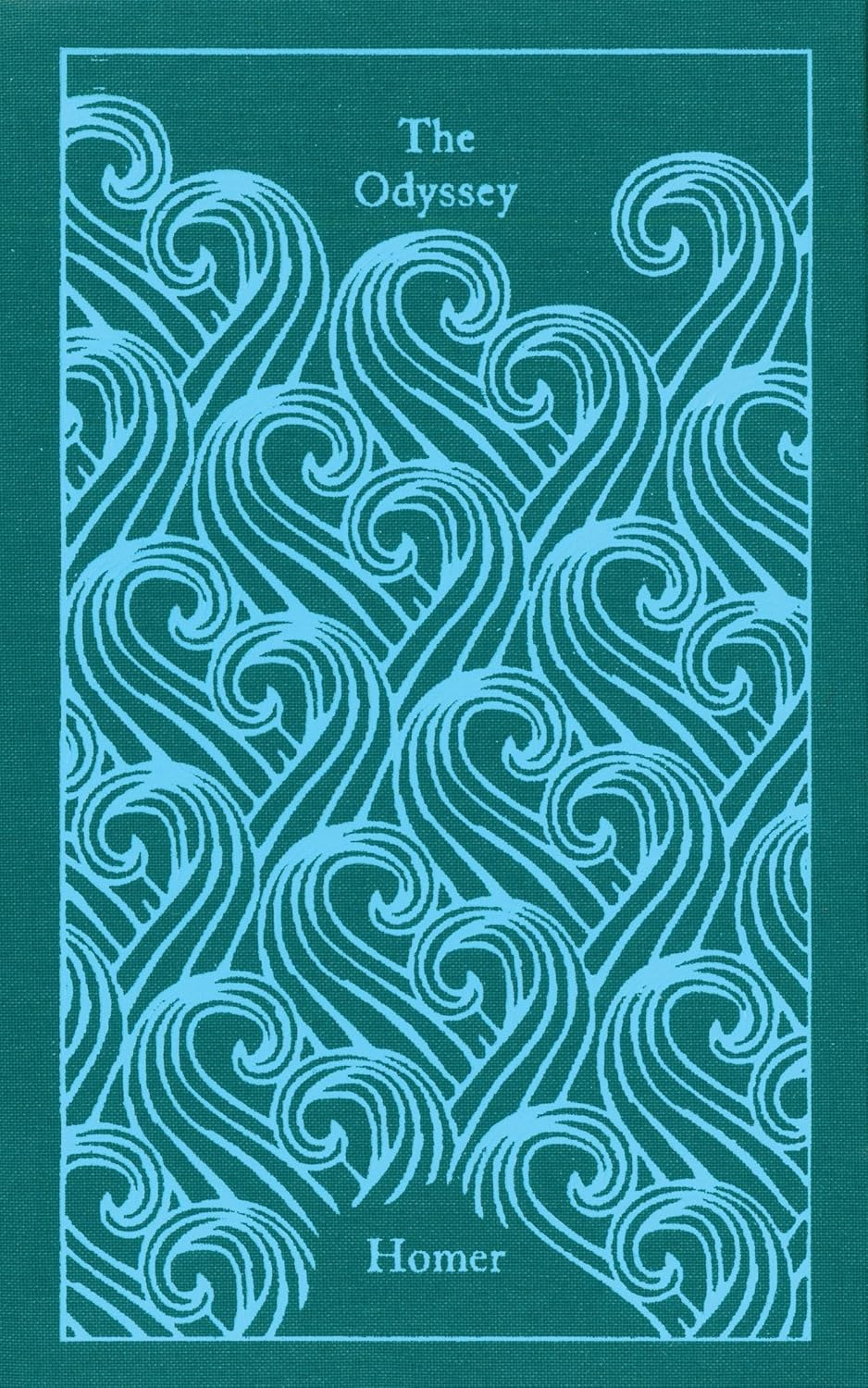
Homer The Odyssey
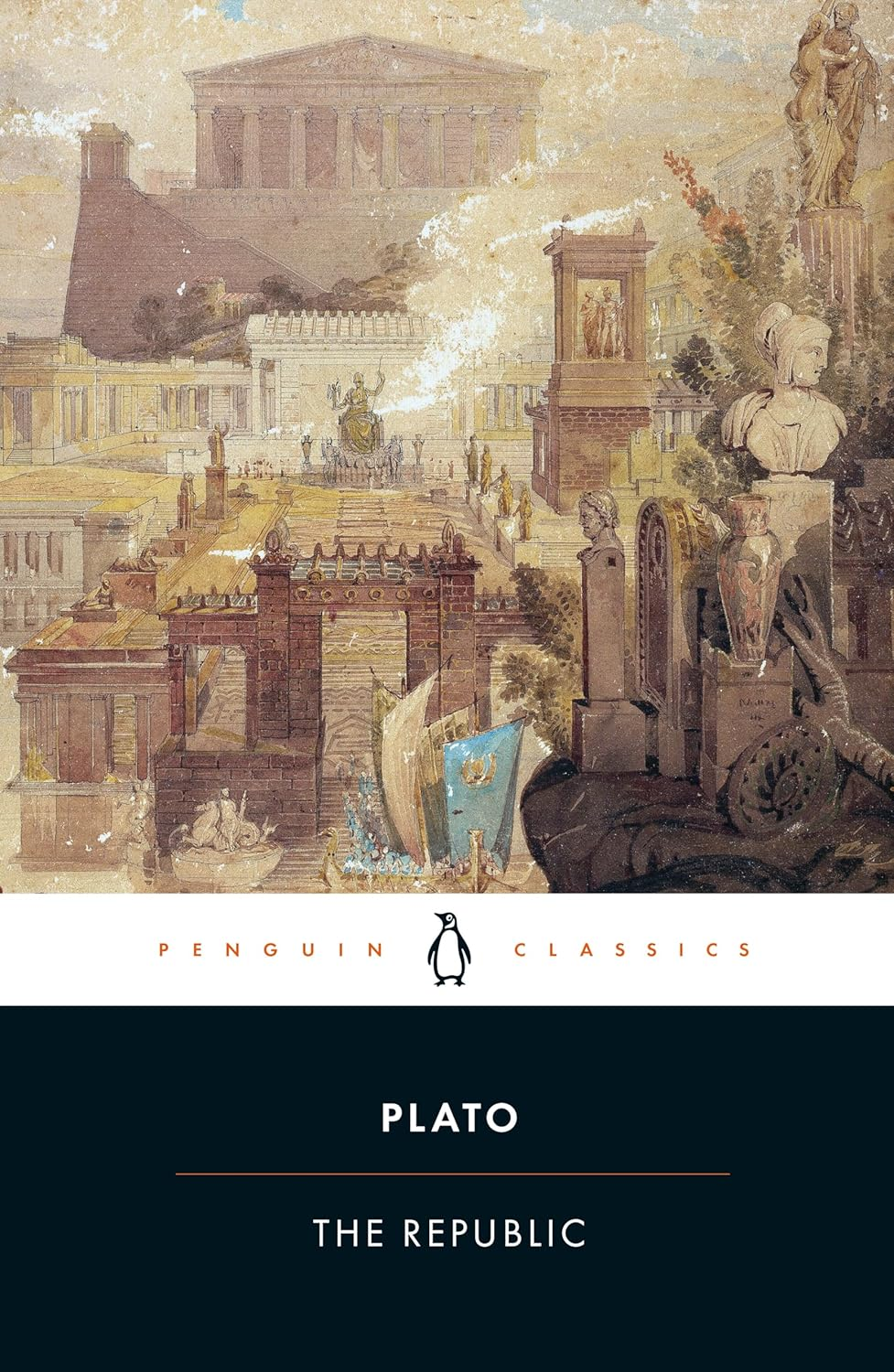
Plato
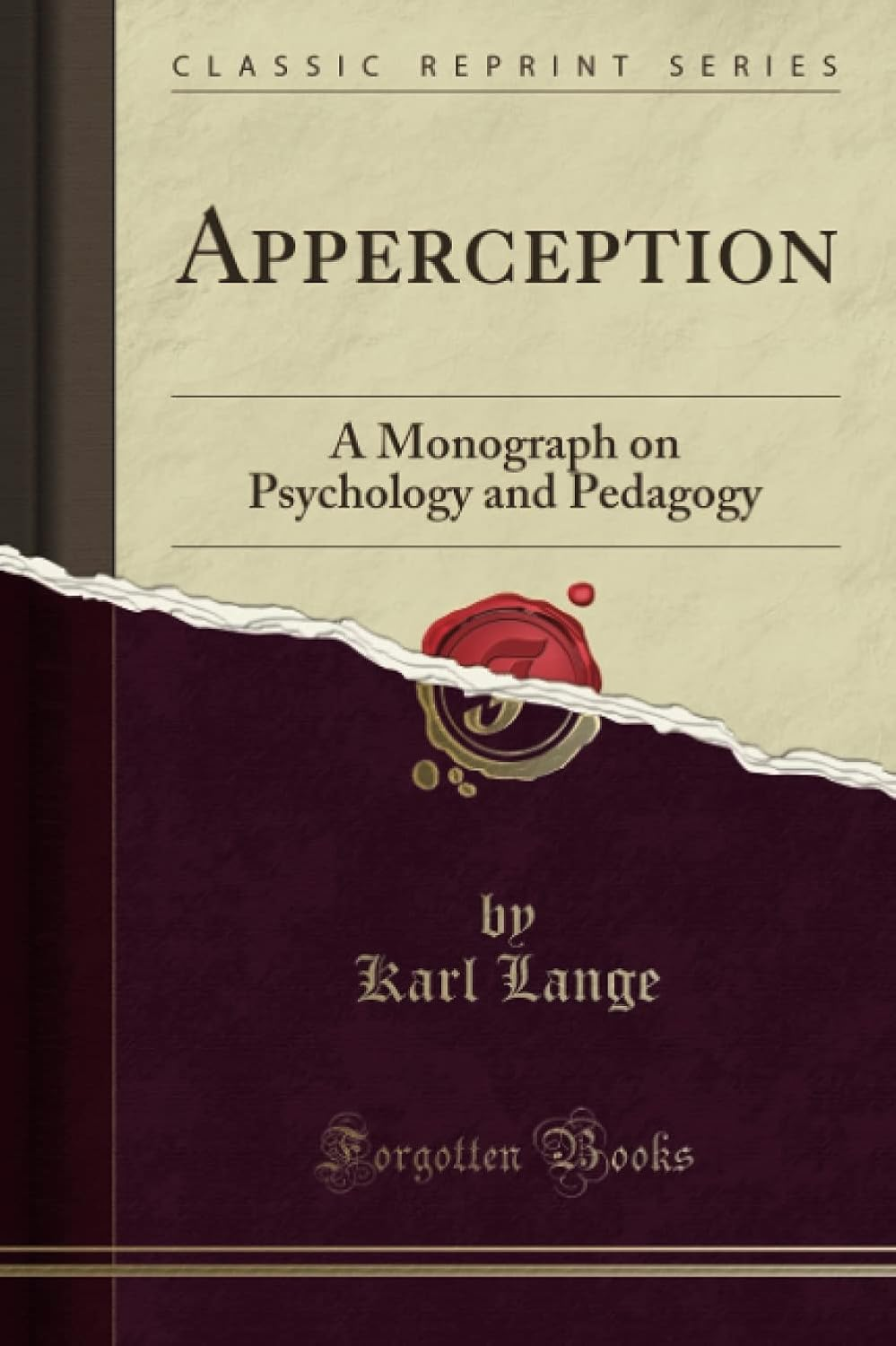
Lange

Pestalozzi's Leonard and Gertrude.
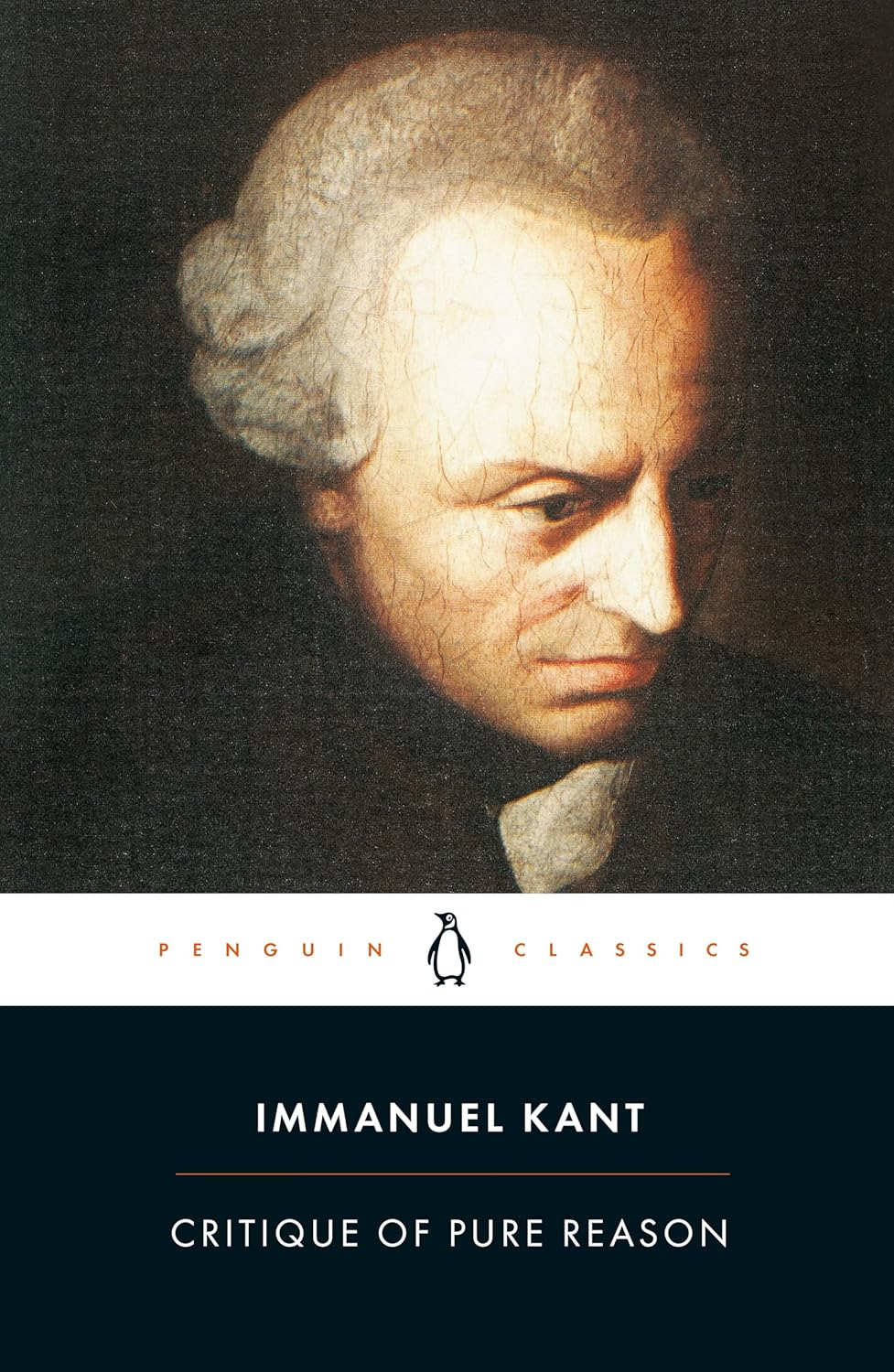
Kant
Other Interviews: Helmholtz, Heine, Rousseau, Cohen, Machiavelli, La Mettrie, Smith, Buchner,Lange, Newton, Berkeley, Hobbes, Locke, Cudworth, Hume, Leibniz, Leporin Erxleben, Fichte, Schiller, Herder, Kierkegaard, Schelling, Kant, Dilthey, Marx, Descartes, Hegel, Schopenhauer, Nietzsche
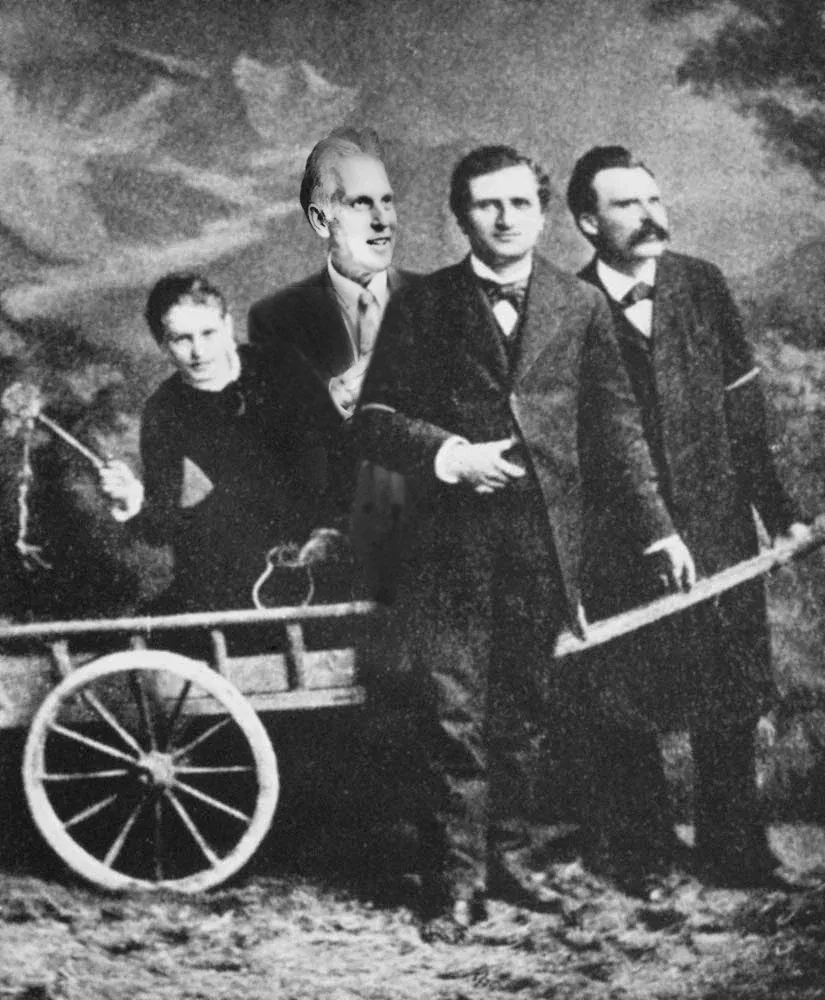
About the Author
Richard Marshall is still biding his time.